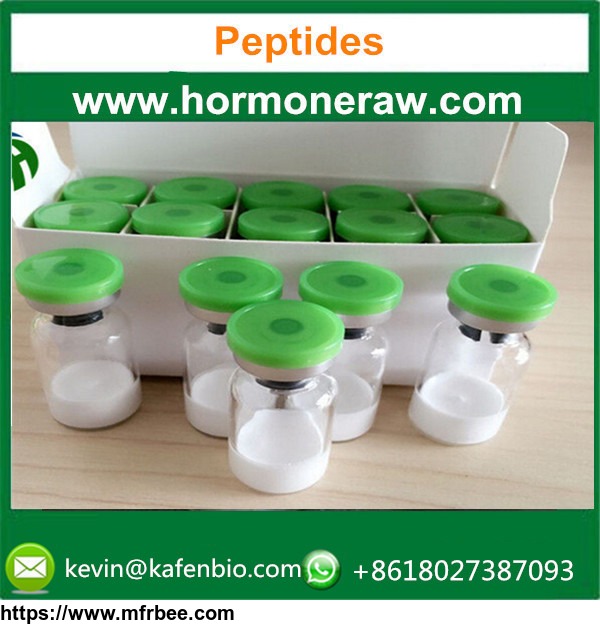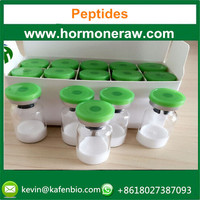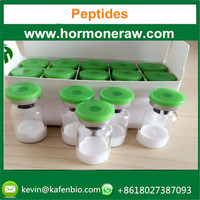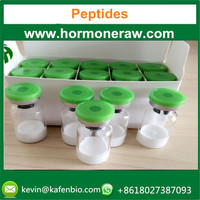Igf Igf Igf Igf Igf
Product Quick Detail
- Minimum Order
- 1
- Place Of Origin
- Guangzhou
- Packaging
- According to customer require
- Delivery
- According to customer require
Specifications
Igf Igf Igf Igf Igf 

Igf-1lr3
What is IGF-1Lr3
IGF-1Lr3 is basically a polypeptide hormone that has the same some of the same molecular properties as insulin.Ig-f-1 dose actually stand for insulin-like growth factor. IGF-1Lr3 is mainly responsible for long bone growth in children and it also affects muscle growth and repair of adults. IGF-1Lr3 is a more potent version of IGF-1Lr3. It's chemically altered i like to think "enhanced" to prevent deactivation by IGF-1Lr3 binding proteins in the bloodstream. This results in a longer half-life of 20-30 hours instead of 20 min... So that means a far more effective version than the short chain we we re perhaps more familiar with.IGF-1Lr3 is also known as IGF-1Lr3 or Insulin-Like Growth Factor-I Long Arg3.
Variants
Ig-f-1 variants are split into two groups: IGF-1Lr3 and DES IGF (usually presented as IGF DES). Base IGF has a very short half life (about 10-20 minutes); as a result, it is quickly destroyed by the body. This is why Ig-f-1 was modified to make the amino acid analog Long R3 Ig-f-1 The other variant of Ig-f1 called DES Ig-f1 is a truncated version that is 10X more potent than Ig-f1. Both variants are similar to its root but have different actions, allowing them to function in a specific ways.
IGF-1Lr3
IGF-1Lr3 has a half-life of about 20-30 hours and is much more potent than base Ig-f1. Since its half-life is about a day, the IGF-1Lr3 will circulate the body, for around 24 hours, binding to receptors and activating cell communication that improves muscle growth and fat loss.LR3 prevents glucose from entering into cells, which, in turn, forces the body to burn fat and not sucrose. In addition, its long half-life is desirable for another reason; site injections aren't necessary, as IGF-1Lr3 will cycle the body binding to all muscle cells for about a day.
IG-F1 DES
DES IG-F-1is the shorter version of the IG-F-1 chain. It is five (5) times more powerful than IG-F1 and ten (10) times more powerful than regular base IG-F1. The half-life for DES is about 20-30 minutes, which means this is a very delicate chain. Therefore, administration should only be done at the site where you want to see muscle growth. DES has the ability to stimulate muscle hyperplasia better than LR3. In simple terms, it's best used for site injections, rather than overall growth.In addition, DES is known to bind to receptors that have been deformed by lactic acid, which is often present during workouts. This allows the DES to attach itself to a mutated receptor and signal tissue growth during training. DES can be used longer and more frequently than LR3.
IG-F1 vs. HG-H
Why IG-F1 and not GH? Growth hormone actually is a precursor to IG-F1 Growth hormone does not directly cause muscle growth, but indirectly causes muscle growth by signaling the release of IG-F1.Human Growth Hormone (HG-H) can be very expensive, and to see muscle growth it needs to be paired with insulin or other anabolic steroids. This makes IG-F1 variants like LR3 and DES, which can be used as a standalone drug, a much more viable option for bodybuilder looking to see solid recovery of damaged tissue and muscle growth.
Another concern with methyl 1-test (and methylated steroids in general) is hepatotoxicity. Other substances that are toxic to the liver (such as alcohol) should be avoided to avoid placing extra stress on the liver. Milk thistle, alpha lipoic acid, and N-acetyl-cysteine are commonly recommended to help protect the liver.
When taking methyl 1-test, it is best to start out with at least a week at a dose of 5-10 mg to see how you react. Many find a lower dose to be just as effective as a higher one, but with less side effects. Most seem to find their ideal dose to be in the 10-30 mg range. Cycle length should be kept short, in the range of 1-4 weeks.
How to Storage?
- It is recommended to store metribolone at the room temperature below 30 degrees C.
- Keep the drug away from direct sunlight, heat and moisture.
- Do not let the drug at the sight and reach of children.
Dosing and Injections
IGF-1Lr3
IGF-1Lr3 can be taken 7 days a week at a dose of 50-150mcg a day. Desensitization was shown to occur at around 40 days or roughly 4 weeks. Injection sites can be at any muscle group on the body, as it's not very good at site specific growth.
IG-F1 DES
DES IG-F1 can be dosed at 50-150mcg multiple times a day (prior to training) into specific target areas. since DES has such a short half life (20-30 minutes), desensitization was not noticed at all . Injection sites should be localized; preferably, at the muscle group you want to grow. In simple terms, if you want to grow your biceps, inject IG-F1 DES right into your bicep.
The Half-Life of IGF-1Lr3 and its Effects of IG-F1
It has a considerably longer half-life than other form, nearly 20-30 hours. When IGF-1Lr3 is active, has multiple effects on tissues in muscle cells. It plays a essential role in muscle renewal. IGF-1Lr3 encourages both increase as well distinction of stem cells. IGF-1Lr3 increases satellite cell activity, muscle DNA, muscle protein content, muscle weight and muscle cross sectional area. The importance of IGF-1Lr3 lies in the fact that all of its obvious effects work to induce muscle growth. These effects are enhanced when combined with weight training.
Protein creation is better along with amino acid absorption as a source of energy. It enhances use of fat as energy. In lean tissue, IGF-1Lr3 prevents insulin form carrying glucose across cell membranes, as a result, the cells have to change to burning off fat as a source of energy. IGF-1Lr3 also mimics insulin in the human body.
Perhaps the most remarkable also strong influence it has on the human body is its ability to cause hyperplasia, which is an definite splitting of cells. Hypertrophy is what ensues during weight training; it is an increase in the size of muscle cells. Adult humans have a fixed number of muscle cells, that can become larger with training, however the number of muscle sells does not increase. But, with this preparation use you are able to induce hyperplasia which actually increases the number of muscle cells present in the muscle. Research studies show that with weight training the new cells develop faster and become stronger and more dense.
Research Use of IGF-1Lr3
- enlarged amino acid transporting cells
- increased protein production
- reduced protein degradation
- amplified glucose transporting
- augmented RNA combination
www.hormoneraw.com
Skype:kevin_kafen
WsApp:+8618027387093
Email:kevin@kafenbio.com
- Country: China (Mainland)
- Business Type: Manufacturer
- Market: Africa,Americas,Asia,Europe,Middle East,G20,European Union
- Founded Year: 2003
- Address: No.128,Hanxing East Rd,Zhongcun,Panyu District, Guangzhou, China
- Contact: kevin smith










